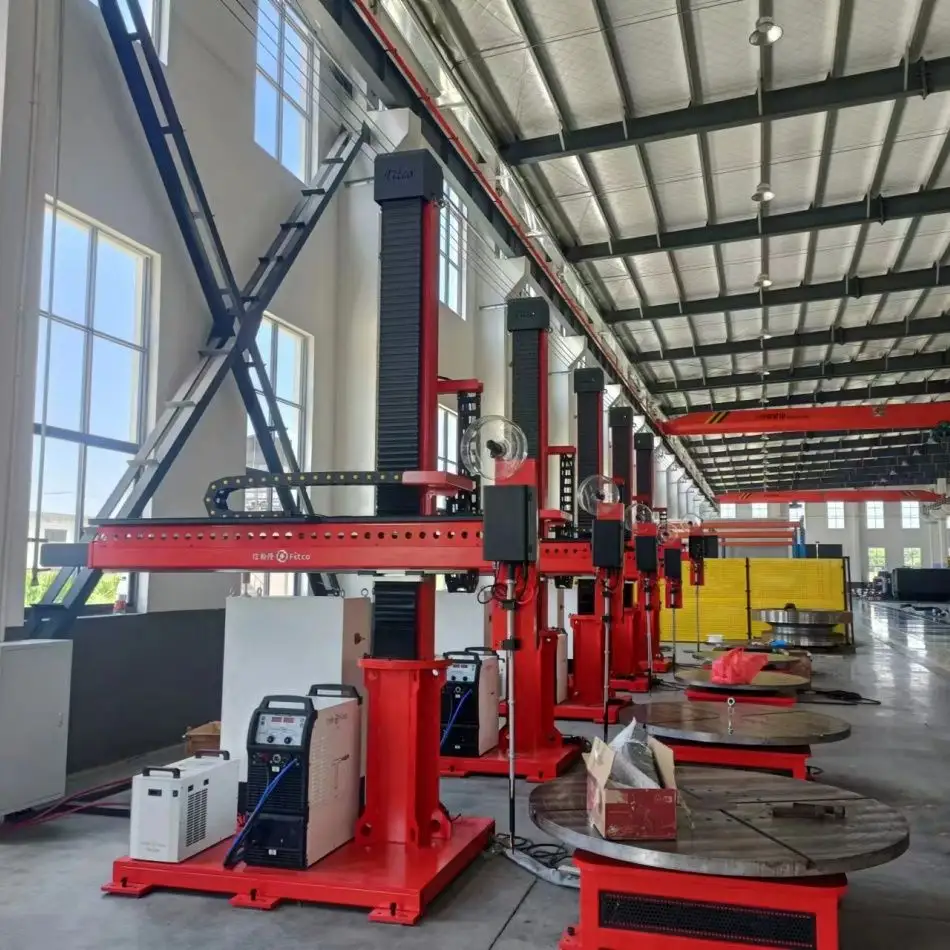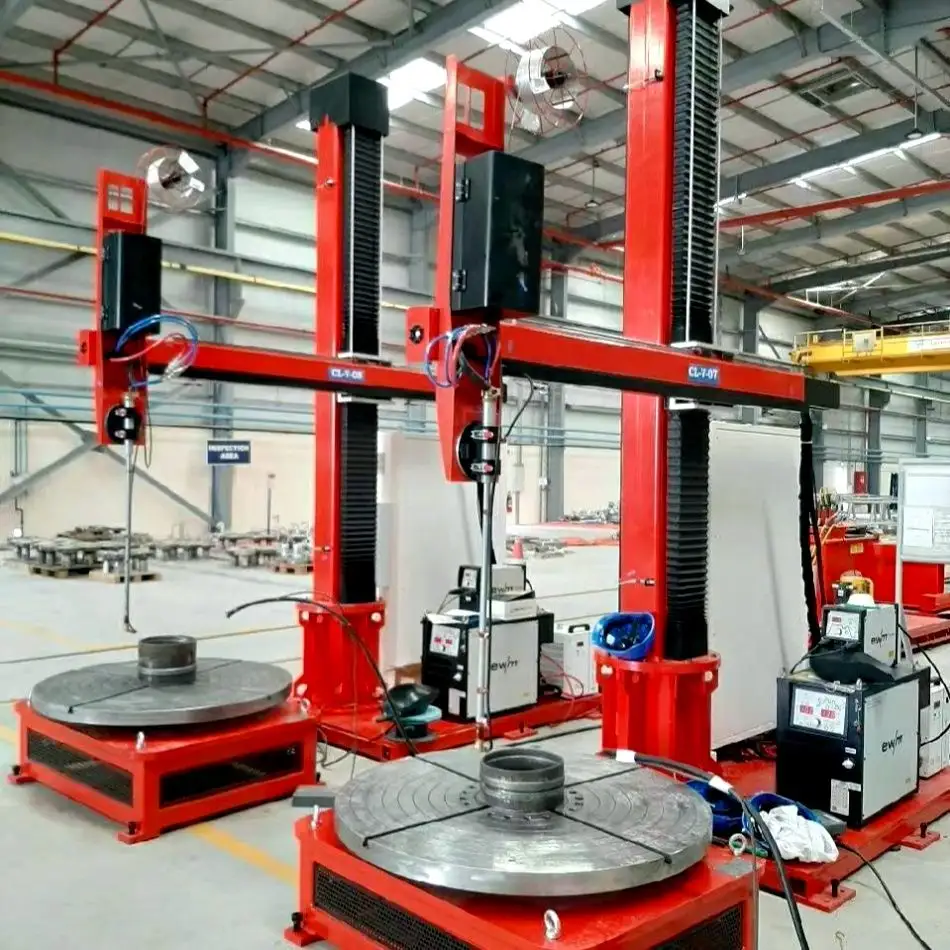Enhancing Surface Performance in Harsh Environments
In industries where corrosion, wear, and high-pressure conditions dominate, the integrity and durability of piping systems are vital to maintaining operational efficiency. A Pipe Cladding Station plays a key role in extending the service life of pipes by applying a corrosion-resistant or wear-resistant layer over the base material. This technology has become an indispensable part of modern industrial fabrication and repair practices, particularly in the oil & gas, chemical, and energy sectors. The use of advanced Pipe Cladding Station solutions significantly contributes to reducing downtime, lowering maintenance costs, and increasing the overall productivity of operations.
Superior Protection and Material Efficiency
Corrosion and Wear Resistance Enhancement
A Pipe Cladding Station allows for the deposition of high-alloy materials, such as Inconel or stainless steel, onto cheaper base metals like carbon steel. This cladding process improves the corrosion and abrasion resistance of the pipe without the need to construct the entire system from expensive materials. This targeted enhancement makes the equipment both economically and functionally superior, especially in sectors dealing with aggressive media.
Material Savings Through Selective Cladding
Rather than replacing entire pipe sections exposed to wear, a Pipe Cladding Station can selectively clad only the areas that are most affected. This selective application maximizes material use, reduces waste, and ensures long-term reliability. It also opens the door to more sustainable manufacturing practices by conserving valuable materials while ensuring performance remains uncompromised.

Operational Efficiency and Consistency
Automation and Repeatability
Modern Pipe Cladding Station systems are equipped with CNC control or robotic arms to ensure precise and repeatable cladding operations. Automation ensures consistent bead geometry and depth, minimizing defects and reducing the need for post-processing. This repeatability is crucial in large-scale industrial applications where consistency can directly impact safety and performance.
Faster Turnaround in High-Demand Industries
Industries like petrochemicals and thermal power plants often operate under tight deadlines. A Pipe Cladding Station streamlines pipe refurbishment processes, reducing the turnaround time for critical components. This rapid delivery can help avoid costly production delays and ensure continuous operation across the facility.
Versatility Across Applications
Compatibility with Various Pipe Sizes and Alloys
Pipe Cladding Station systems are designed to handle a wide range of pipe diameters and materials. Whether the project requires internal or external cladding of small or large bore pipes, the system can be adjusted accordingly. This adaptability enables fabricators to meet the diverse demands of multiple industries without the need for custom-built machinery.
Suitability for Diverse Industry Needs
From offshore drilling rigs to chemical processing plants, a Pipe Cladding Station can be tailored to suit specific industrial environments. With the right process configuration—such as TIG, MIG, or PTA cladding—fabricators can ensure that the equipment meets both structural and metallurgical specifications. This versatility also allows companies to take on a broader scope of projects, thereby increasing revenue potential.
Cost Effectiveness and Long-Term Value
Reduced Maintenance and Downtime
Cladded pipes generally last longer and perform more reliably than unprotected alternatives. By investing in a Pipe Cladding Station, companies can drastically cut down on frequent replacements and unscheduled maintenance. This long-term reliability directly translates to cost savings and improved return on investment.
Lower Production Costs
Since a Pipe Cladding Station allows for the use of inexpensive substrate materials while still achieving high-performance surfaces, overall production costs are lowered. The process also minimizes the need for expensive post-weld heat treatments and non-destructive testing, further enhancing economic efficiency.
Environmental and Safety Advantages
Minimization of Hazardous Waste
Cladding only the essential areas of the pipe reduces the total volume of metallic waste generated. This contributes to more sustainable manufacturing and aligns with environmental compliance requirements. Pipe Cladding Station systems are often designed to capture and manage particulates or fumes, adding another layer of environmental protection.
Enhanced Safety for Workers and Systems
With improved material properties, cladded pipes are less likely to fail under pressure or exposure to harsh chemicals. This directly improves plant safety and reduces the risk of workplace accidents. Furthermore, the automated nature of modern Pipe Cladding Station systems minimizes human exposure to high-heat zones, reducing the risk of operator injury.
Customization and Technological Integration
Adaptability to Client Specifications
A Pipe Cladding Station can be customized to meet the specific requirements of individual projects, whether it involves certain welding methods, cladding materials, or pipe dimensions. This high level of customization ensures that the solution provided is the best possible fit for the application.
Integration with Smart Manufacturing Systems
Advanced Pipe Cladding Station setups can be integrated into Industry 4.0 frameworks, utilizing sensors, data analytics, and real-time monitoring to enhance efficiency. These capabilities enable proactive maintenance, improve traceability, and help in meeting strict quality standards.
Reliability in Extreme Working Conditions
High-Performance in Aggressive Environments
A Pipe Cladding Station enables the use of high-performance overlays capable of withstanding extremely corrosive or abrasive conditions. Whether it’s handling sour gas, slurries, or high-temperature fluids, cladded pipes offer a significantly longer operational life, especially in mission-critical applications.
Consistent Quality Assurance
Each Pipe Cladding Station comes with control mechanisms for parameters like travel speed, arc voltage, and wire feed rate. These ensure that each weld overlay is consistent in thickness and fusion quality. Such precise control helps maintain the mechanical integrity of the final component, ensuring it can handle operational stress without failure.
Frequently Asked Questions
What materials can be used in a Pipe Cladding Station?
A Pipe Cladding Station can work with a wide range of cladding materials such as Inconel, Hastelloy, stainless steel, and cobalt-based alloys. The choice depends on the base material and the environmental conditions the pipe will face.
Is a Pipe Cladding Station suitable for small diameter pipes?
Yes, modern Pipe Cladding Station systems can be adapted for both small and large diameter pipes. With the right fixtures and automation, even narrow bore pipes can be effectively cladded.
How does a Pipe Cladding Station improve plant efficiency?
By extending the life of pipes and reducing the frequency of maintenance, a Pipe Cladding Station helps in maintaining consistent plant operation. It reduces downtime and saves costs associated with frequent part replacements.
Can the process be automated for large volume projects?
Absolutely. Most Pipe Cladding Station setups today come with automation features that are ideal for high-volume production. These systems can operate with minimal manual intervention, improving output consistency and throughput.
Table of Contents
- Enhancing Surface Performance in Harsh Environments
- Superior Protection and Material Efficiency
- Operational Efficiency and Consistency
- Versatility Across Applications
- Cost Effectiveness and Long-Term Value
- Environmental and Safety Advantages
- Customization and Technological Integration
- Reliability in Extreme Working Conditions
- Frequently Asked Questions

 EN
EN
 AR
AR BG
BG HR
HR CS
CS DA
DA NL
NL FI
FI FR
FR DE
DE EL
EL HI
HI IT
IT JA
JA KO
KO NO
NO PL
PL PT
PT RO
RO RU
RU ES
ES SV
SV TL
TL IW
IW ID
ID LT
LT UK
UK SQ
SQ HU
HU TH
TH TR
TR FA
FA AF
AF CY
CY MK
MK LA
LA MN
MN KK
KK UZ
UZ KY
KY